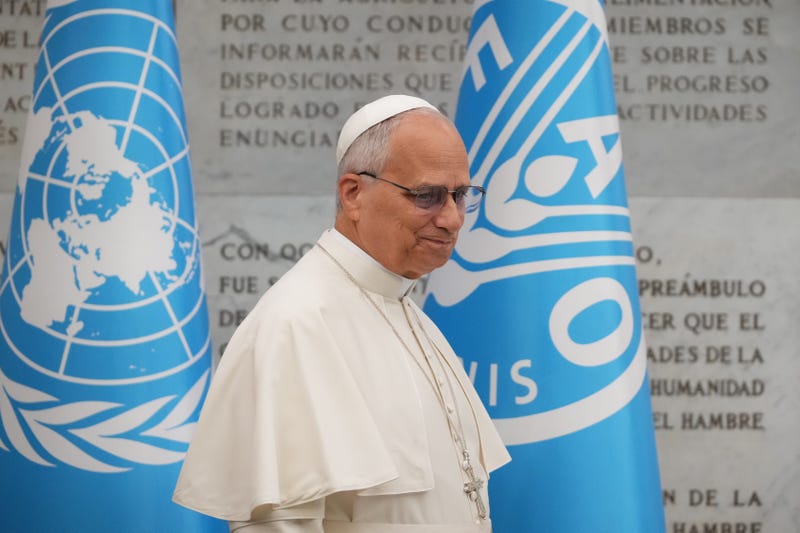
ROME (AP) — Pope Leo XIV on Thursday denounced the use of hunger as a weapon of war as he urged world leaders to act responsibly and focus on the multitudes across the globe who face hunger, wars and misery.
During an address on World Food Day at the U.N. Food and Agriculture Organization, Leo urged the international community to not look the other way, at a time of dwindling foreign aid budgets.
The pope named the conflicts in Ukraine and Gaza, along with Haiti, Afghanistan, Mali, the Central African Republic, Yemen and South Sudan. He cited U.N. data showing that around 673 million people do not eat enough each day.
“We can no longer delude ourselves by thinking that the consequences of our failures impact only those who are hidden out of sight,” he said. “The hungry faces of so many who still suffer challenge us and invite us to reexamine our lifestyles, our priorities and our overall way of living in today’s world.”
“We must make their suffering our own,” he concluded in English, after delivering most of his speech in Spanish to world leaders, ministers and ambassadors gathered at FAO's Rome headquarters for an event commemorating the U.N. agency's 80th anniversary.
Leo condemned the use of hunger as a weapon of war, but didn’t name any specific conflict or region. Humanitarian groups have long denounced the practice, in which food or aid is restricted or diverted during a conflict, leaving innocent civilians to go hungry. Most recently, even some Jewish groups have accused Israel of using starvation as a weapon of war in Gaza, a claim Israel strongly denies.
“In a time when science has lengthened life expectancy, allowing millions of human beings to live, and die, struck by hunger is a collective failure, an ethical derailment, a historic offense,” he said.
Leo’s warning comes as U.N. food aid agencies face severe funding cuts from their top donors that risk hurting their operations in key countries and forcing millions of people into emergency levels of hunger.
The World Food Program, traditionally the U.N.’s most-funded agency, said in a new report on Wednesday that its funding this year “has never been more challenged” — largely due to slashed outlays from the U.S. under the Trump administration and other leading Western donors.
It warned that 13.7 million of its food aid recipients could be forced into emergency levels of hunger as funding is cut. The countries facing “major disruptions” are Afghanistan, Congo, Haiti, Somalia, South Sudan and Sudan.